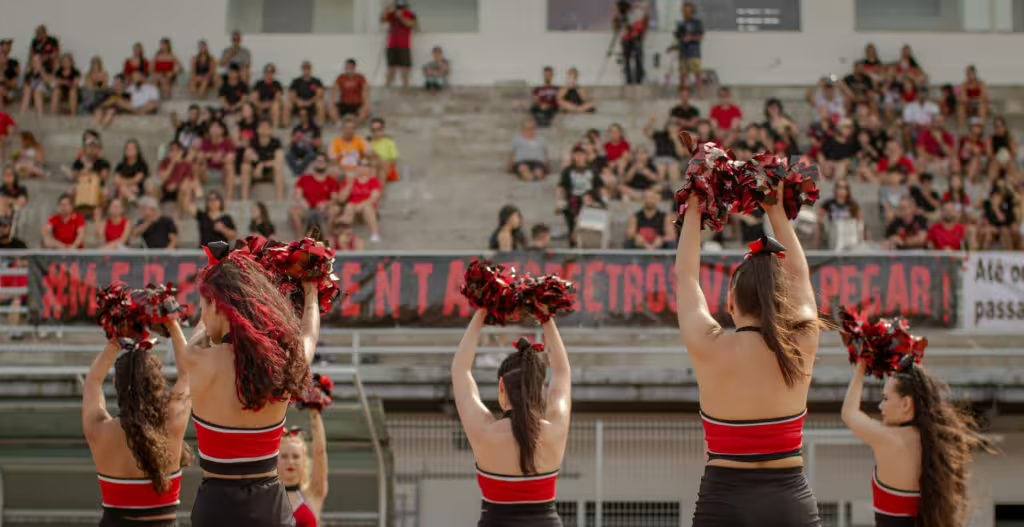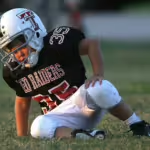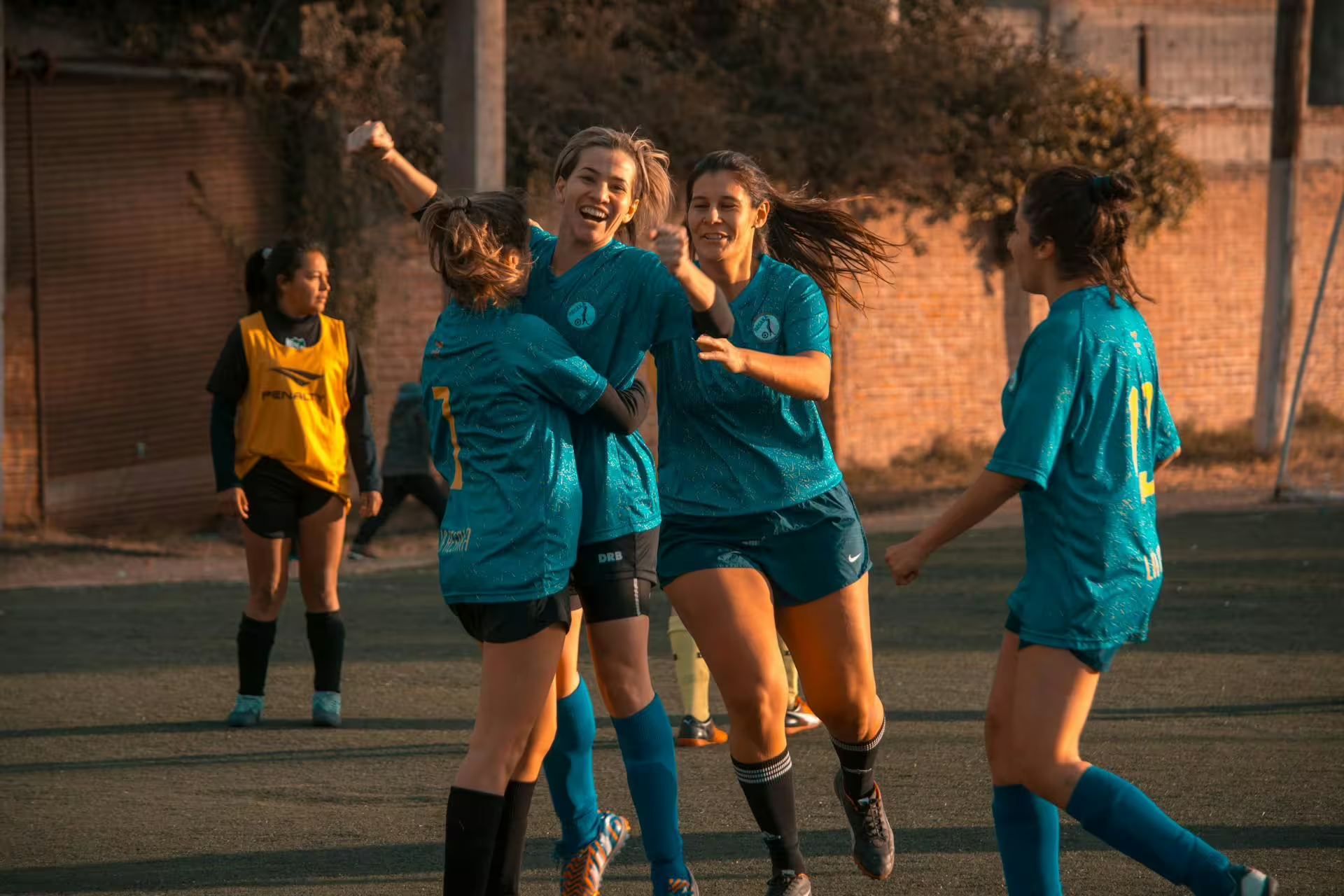Teen athletes with an eye towards college sports are at the mercy of recruiters when it comes to finding their future place in the dual world of sports and academic. Because of this, parents will often find themselves embroiled in a near-constant dance of numbers, performance metrics, and recommendations. And while many recruiters do end up tabulating a candidates averages, goals scored, yards gained, etc., they are also looking for some qualities that are less easy to quantify via statistics.
Numbers might be easy to measure, compare, and track across seasons, but they are hardly the whole picture of a qualified applicant. Indeed, more often than not these days, coaches are looking beyond the stats to evaluate who thees young athletes are as people.
Many administrators, coaches, and recruiters want to know if their athletes have empathy, strength of character, or, in many cases, leadership qualities. They often as questions such as: Does this player lift up teammates? Do they handle adversity with grace? Do they show respect to opponents, referees, and coaches? Do they push themselves when no one is watching?
All of those questions are valid and valuable, which is why, in this article, we will discuss how those questions should be answered. We will explore why coaches are now looking for student-athletes of moral character and leadership, not just those with prodigious athletic ability. We will also lay out which traits coaches value and how parents can help to nurture those traits in their children. This way, when college comes a’ knockin’ your child will be ready to impress!

Beyond the Numbers
Team Success Depends on More Than Talent
Popular culture has given many of us a pretty negative—though not entirely inaccurate—version of what can happen when an athlete isn’t exactly a team player. We’ve seen jocks portrayed as bullies more times than we can count and though many of them are undisputedly talented, the gist is that their bad attitudes are a detriment to their teams’ overall success. Indeed, even the most gifted athlete can drag down a team if they lack discipline, humility, or simple kindness.
Because of the reality that exists behind this stereotype, the coaches of today are aware of the potential for young athletes to be both talented and arrogant at the same time. They also know that building a cohesive unit is more important to the team, nay, the university’s success than simply assembling a roster of individual stars. The fact is, a talented but selfish player may score points but undermine chemistry, whereas a slightly less skilled but selfless teammate is capable of elevating everyone else’s game.
Programs Represent Institutions
In the same vein as some of the points above, we must remember that college and professional teams are tied to schools, sponsors, and communities. This means that athletes who behave poorly on or off the field reflect the program itself and can tarnish their reputation as well as the institution’s. Thus, coaches and recruiters have begun to seek out athletes who embody the values of their institution, whose who evince leadership, integrity, and respect; all of which cannot be measured via sports metrics.
Long-Term Growth Requires Mental Strength
There is no denying that athletic talent can get a player noticed, but their mental toughness and resilience is what will sustain them through their sports career. It will keep them going through all manner of injuries, slumps, and setbacks. And make no mistake, those things will happen throughout their college life and beyond. Coaches are more than aware of this and will therefore seek out recruits who can bounce back from such tribulations.
Key Traits That Coaches Value in Recruits
Respect and Sportsmanship
We all want our children to treat those they encounter on the sports field with respect. The importance of respect and good sportsmanship are facets of sport that we at Cultured Athlete have pointed out time and again. We shall continue to do so, and for good reason. Coaches and recruiters pay attention to how well young athletes evince these qualities. Respectful athletes are good for two reasons: one, they avoid unnecessary penalties during the game and two, they can help to foster a positivity within the team dynamic.
Work Ethic and Self-Discipline
Recruiters also seek out athletes who push themselves to always be better. They don’t want complacency of talent, they want someone who shows up at practice every time, who commits to the grind of the thing. If you aren’t training, conditioning, eating right, or taking time to recover, then you aren’t doing it right. Not only that, but a strong work ethic can indicate that a player is dedicated not only to their own personal growth, but that of their teammates.
Teamwork and Communication
Players who know how to lift up their teammates, communicate effectively, and accept their roles gracefully are also of particular interest to college recruiters. In short, recruiters are looking for leaders who excel as an individual but also understand the dynamic that comes with playing sport with other people. They understand the vagaries of communication and conflict resolution and know how to inspire others. Those are the athletes worth bringing to the table, even if their skills might be less impressive than a less sociable sort.
Coachability
Coaches also need people who know how to take direction. The best leaders know how to delegate and how to follow along. They play their part, listen, learn, and adapt, all whilst taking advantage of the wisdom and experience of those who have deigned to coach them. Thus, recruiters often seek out players who are receptive to feedback and are respectful of authority. In the end end, an uncoachable athlete is a liability, no matter how good their stats might be.

How Coaches Evaluate Character in Recruits
Scouts aren’t just looking at a player’s stats—they’re watching the bench, talking to teachers and community members, keeping an eye on their social media. In a world where young people are more and more transparent, it is easier and easier to spot cracks in the veneer. Athletes who act irresponsibly, recklessly, or angrily do not go unnoticed. Neither do those whose grades and classroom behavior leave something to be desired. Conversely, those that cheer on their teammates, respect others, do well in school, and have a positive social media presence are far more likely to garner favor in the eyes of college recruiters.
The Parent’s Role
By the time a child starts picking out colleges, most parents already fully understand that kids learn the most from watching adults. By that point in their lives, we have likely taught them a great deal about respect, politeness, and personal responsibility, but that doesn’t mean we can’t add some more positive traits to the mix just in the nick of time. We need to show them how to evince grace and humility when losing or winning. We need to encourage them to be accountable for their actions; good or bad. Accountability is one of the most desirable traits in a leader, after all.
At the same time, we need to teach them the importance of balancing life, sports, and academics. Well-rounded young people are more likely to be more positive around others. They have control of themselves, their emotions, and that shows. It demonstrates a maturity and adaptability that coaches prize in those their recruit. Parents can also help their kids by giving them more responsibilities, not only at home but in regards to their sports career. Make them clean and carry their gear, have them find their own way to and from practice, in essence, let them be responsible for themselves; it will help them immensely when they get to college.
Why Character Lasts Longer Than Stats
Ultimately, statistics fade and sports records can be broken. A person’s character is what lasts, how they affect those around them and represent themselves is what will live on long after they have graduated to bigger and better things. That is why coaches most value athletes with resilience, leadership, and integrity. Those that possess such qualities are better prepared for life beyond sports.

Cultured Athlete Says…
As you can see, today’s competitive sports landscape may be challenging to navigate, but with the right qualities in hand, your child will be able to stand out in the crowd. Remember, talent may open the door, but good character will help to keep it open long enough for your child to pass through. In the end, coaches seek athletes who are resilient, respectful, hardworking, coachable, and capable of leading others to success. If you are a parent with a child who has big dreams of college sports, it falls to you to help nurture those qualities. Recruitment is far more than a numbers game, it is about finding the athletes who will make a positive impression both on and off the field.
Discover more from CulturedAthlete
Subscribe to get the latest posts sent to your email.






